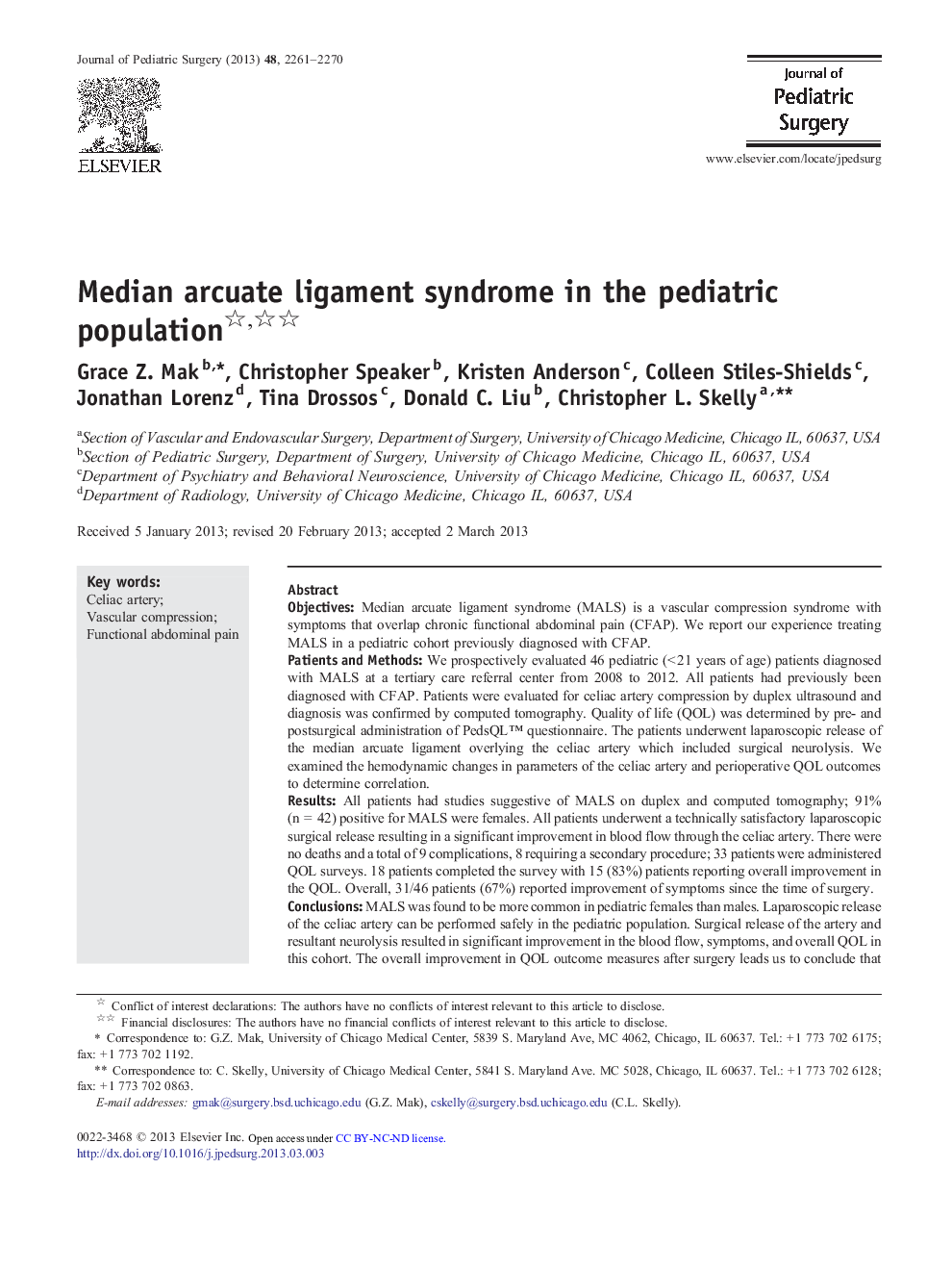| Article ID | Journal | Published Year | Pages | File Type |
|---|---|---|---|---|
| 6217442 | Journal of Pediatric Surgery | 2013 | 10 Pages |
ObjectivesMedian arcuate ligament syndrome (MALS) is a vascular compression syndrome with symptoms that overlap chronic functional abdominal pain (CFAP). We report our experience treating MALS in a pediatric cohort previously diagnosed with CFAP.Patients and MethodsWe prospectively evaluated 46 pediatric (< 21 years of age) patients diagnosed with MALS at a tertiary care referral center from 2008 to 2012. All patients had previously been diagnosed with CFAP. Patients were evaluated for celiac artery compression by duplex ultrasound and diagnosis was confirmed by computed tomography. Quality of life (QOL) was determined by pre- and postsurgical administration of PedsQL⢠questionnaire. The patients underwent laparoscopic release of the median arcuate ligament overlying the celiac artery which included surgical neurolysis. We examined the hemodynamic changes in parameters of the celiac artery and perioperative QOL outcomes to determine correlation.ResultsAll patients had studies suggestive of MALS on duplex and computed tomography; 91% (n = 42) positive for MALS were females. All patients underwent a technically satisfactory laparoscopic surgical release resulting in a significant improvement in blood flow through the celiac artery. There were no deaths and a total of 9 complications, 8 requiring a secondary procedure; 33 patients were administered QOL surveys. 18 patients completed the survey with 15 (83%) patients reporting overall improvement in the QOL. Overall, 31/46 patients (67%) reported improvement of symptoms since the time of surgery.ConclusionsMALS was found to be more common in pediatric females than males. Laparoscopic release of the celiac artery can be performed safely in the pediatric population. Surgical release of the artery and resultant neurolysis resulted in significant improvement in the blood flow, symptoms, and overall QOL in this cohort. The overall improvement in QOL outcome measures after surgery leads us to conclude that MALS might be earlier diagnosed and possibly treated in patients with CFAP. We recommend a multidisciplinary team approach to care for these complex patients.
